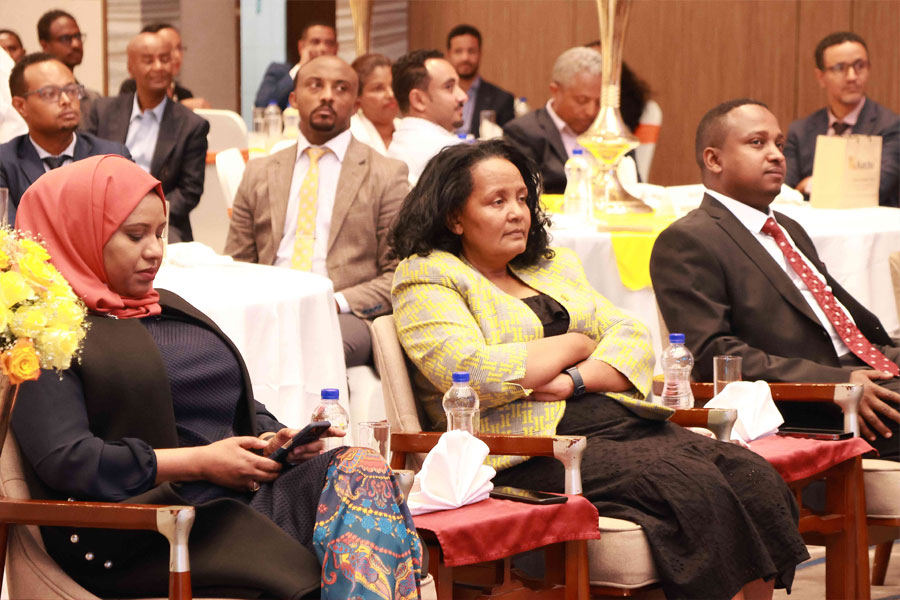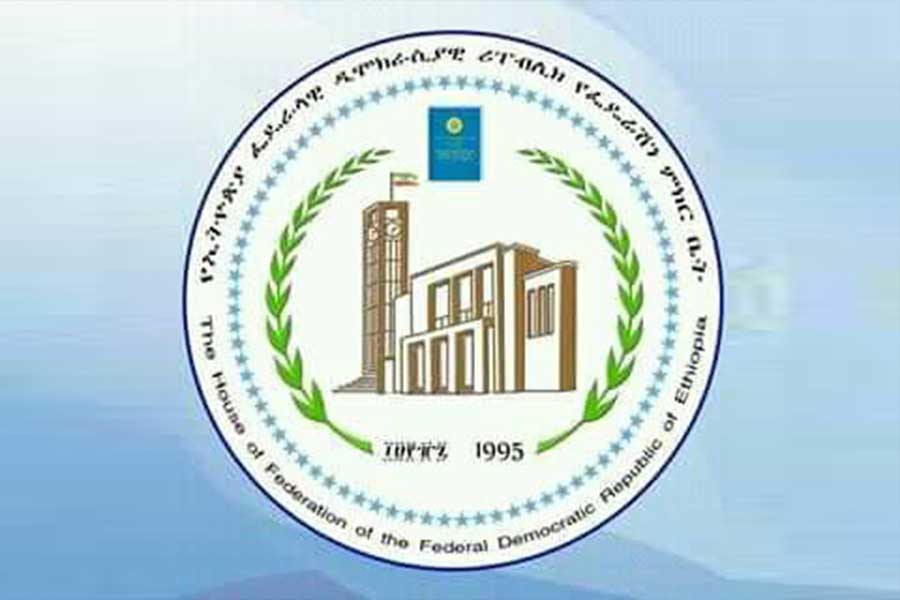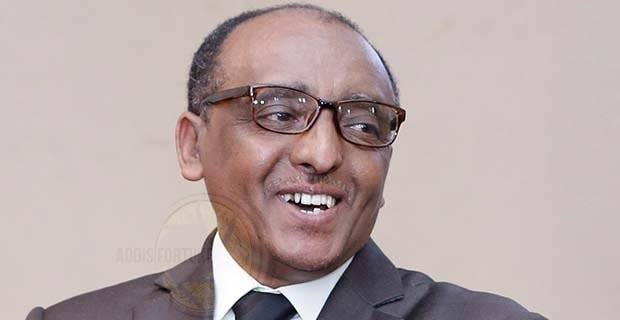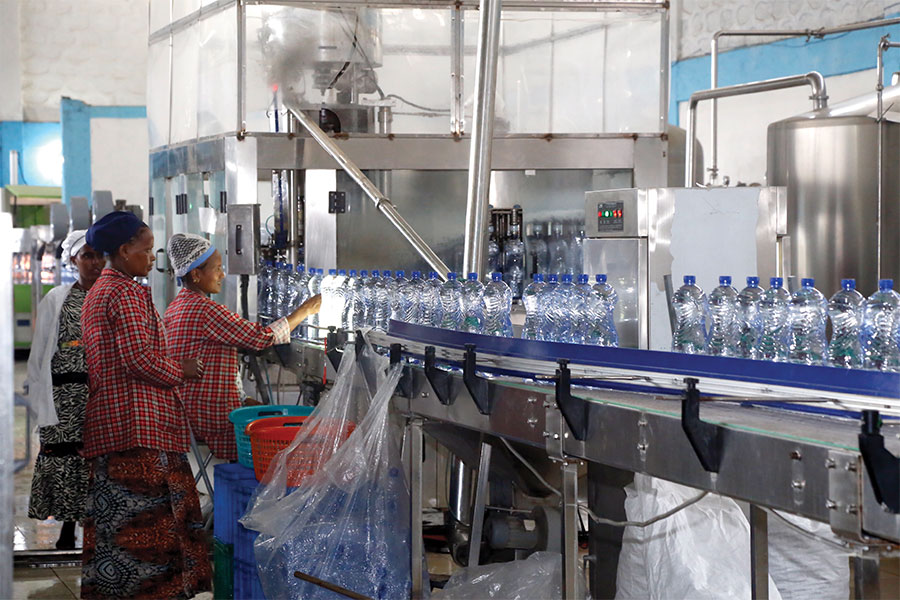
Commentaries | Dec 16,2023
Federal authorities are urging banks and insurance companies to contribute hundreds of millions of Birr to pay for a major development project in the Wollega region, in Oromia Regional State, a development prompting cooperation and concern within the financial sector.
Eyob Tekalign (PhD), a state minister for Finance and a native of Wollega, called on financial institutions to support the development of the four zones in Wollega, an area rich in potential but affected by ongoing political instability and militarised conflict. The initiative is part of Prime Minister Abiy Ahmed's (PhD) desire to modernise infrastructure and urban landscapes across the country.
According to a letter dated September 19, 2024, the financial institutions "will also benefit from the development," stating that the Nekemte-centred corridor project would soon commence. His request comes at a time when the Regional State faces increasing financial strain to fund such ambitious projects.
Finance Minister Ahmed Shide convened an urgent meeting with senior executives of commercial banks and insurance companies to formally place the administration's request for their support for the corridor development in the country's western regions.
Following a series of meetings held on September 10 and 11, bank executives agreed to contribute based on their respective net income, with more profitable banks and insurance firms expected to give more. Sources close to the matter disclosed that the net income of all 32 banks in the 2023-24 fiscal year totalled 58.3 billion Br.
Ethiopian Bankers' Association (EBA) is expected to submit the final contribution plans of each bank, chaired by Abie Sano, also president of the state-owned Commercial Bank of Ethiopia (CBE), by October 5. Nonetheless, they have agreed to contribute over 615 million Br, though details await an upcoming meeting with bank executives.
"We're finalising the allocation of contribution shares based on the profits earned by all 32 commercial banks," said Demissew Kassahun, the EBA's secretary-general. "We considered the negative externalities of various scenarios before concluding."
They contemplated chipping in from three options of one percent, 1.3pc and 1.7pc.
GOH Betoch Bank, the first private mortgage bank, is awaiting its assessed share of contribution.
"All commercial banks are collectively deciding on their contributions," said CEO Girum Tsegaye.
However, as a recent entrant, he noted that the Bank's profits have just begun to grow.
"The board has yet to decide how much the Bank will contribute," he added.
Some industry experts have expressed concern about the push for contributions on corporate entities, and particularly the financial sector. Investment banker Worku Lemma warned that banks must balance corporate social responsibility (CSR) initiatives with their financial obligations.
"They should not be forced to make contributions," he said, warning of the potential for burdening banks, which could lead to declining profits, shrinking dividends, and impacting their growth.
A June stress report released by the National Bank of Ethiopia (NBE) revealed precarious liquidity situations for several banks. Some struggled to meet weekly liquidity requirements and experienced mismatches in their liabilities and assets. The ratio of liquid assets to deposits fell by three percentage points compared to the previous year, dropping to 24.2pc. Despite the Ministry of Finance enforcing this CSR undertaking, the central bank remains on the sidelines.
"We've heard nothing of the sort," said Fikadu Digafe, vice governor of the NBE, when asked about the request for contributions.
Experts note that while banks and insurers are expected to have funds for CSR activities, these should be utilised in a manner that does not adversely affect their balance sheet or pose undue risk.
"They should conduct proper evaluations of how much and for what purpose they are contributing," one expert said, cautioning banks to consider the broader benefits when asked to contribute.
This is not the first time financial institutions have been called upon to support national initiatives. Over the past several years, they have been required to conduct CSR activities in war-affected areas. In December 2020, banks contributed nearly 200 million Br through the EBA, only a month into the civil war in northern Ethiopia. They were also required to donate over 800 million Br to the Ethiopian National Defence Force, with half of that amount coming from the state-owned Commercial Bank of Ethiopia (CBE). Other banks like Awash, Dashen, Abyssinia, United, Coop Bank of Oromia, and the Development Bank of Ethiopia (DBE) each donated 10 million Br.
Sources disclosed that the 18 insurance firms have also been asked to contribute to the Wollega corridor development project, with industry-wide contributions totalling 100 million Br.
"We're waiting for directions on how to effect the contributions," said Dawit GebreAmmanuel, CEO of Ethiopia Reinsurance, which was incorporated in 2016 as a pioneer in the reinsurance business.
Two weeks ago, Prime Minister Abiy officially launched the second phase of the corridor development initiative, which includes a comprehensive transformation of various cities across different regions. The announcement was made while awarding Addis Abeba city authorities for completing the project's first phase.
At a gathering of federal agency heads, the Prime Minister praised the "transformation achieved in modernising the corridors of Addis Abeba within a short period," stating the positive impact on many lives.
"Our plan is bigger," he declared, urging the replication of such development projects in other parts of the country.
Abiy cautioned Addis Abeba officials to apply lessons learned from the first phase as they move forward. He assigned new corridors and local development plans to various city authorities, entrusting them with overseeing regional city projects. The Ministry of Urban & Infrastructure has been tasked with supervising the development, with Minister Chaltu Sani personally monitoring progress and submitting timely reports to the Prime Minister's Office.
Prime Minister Abiy also directed leaders of the different regional states, zones, and towns to initiate their urban renewal projects. He urged international development partners to accelerate and allocate funds for his administration's future urban renewal efforts.
"Modernising and transforming other parts of the country should be done in the same way," said the Prime Minister.
According to Abera Amente, information and administration head at the Ministry of Urban & Infrastructure, some towns like Bishoftu and Adama (Nazareth) are financially and operationally capable of handling these projects independently. However, other towns facing political and economic turmoil require external financial support.
"Some cities need external finances," he told Fortune, adding that the development projects would also include essential services like electricity, water, roads, and green spaces.
While cities like Bahir Dar, Adama, and Sheger are slated to operate autonomously — financially and operationally — others will receive guidance from leaders with experience in running such projects. For instance, Gondar and Bishoftu (Debrezeit) will benefit from the oversight of Adanech Abebe, mayor of Addis Abeba, who would assist in implementing their respective plans. Towns such as Dessie, Semera, Harar, Hawassa, and Arba Minch will receive counselling from the Mayor's colleagues who led the first-round corridor development in Addis Abeba.
PUBLISHED ON
Sep 22,2024 [ VOL
25 , NO
1273]

Commentaries | Dec 16,2023

Sunday with Eden | Apr 13,2019

Fortune News | Aug 05,2023

Radar | Jan 21,2023

Radar |

Fortune News | Feb 08,2020

Fortune News | Oct 11,2020

Fortune News | Sep 14,2020

Verbatim | May 03,2024

Fortune News | Apr 02,2022

Dec 22 , 2024 . By TIZITA SHEWAFERAW
Charged with transforming colossal state-owned enterprises into modern and competitiv...

Aug 18 , 2024 . By AKSAH ITALO
Although predictable Yonas Zerihun's job in the ride-hailing service is not immune to...

Jul 28 , 2024 . By TIZITA SHEWAFERAW
Unhabitual, perhaps too many, Samuel Gebreyohannes, 38, used to occasionally enjoy a couple of beers at breakfast. However, he recently swit...

Jul 13 , 2024 . By AKSAH ITALO
Investors who rely on tractors, trucks, and field vehicles for commuting, transporting commodities, and f...

Oct 25 , 2025
The regulatory machinery is on overdrive. In only two years, no fewer than 35 new pro...

Oct 18 , 2025
The political establishment, notably the ruling party and its top brass, has become p...

Oct 11 , 2025
Ladislas Farago, a roving Associated Press (AP) correspondent, arrived in Ethiopia in...

Oct 4 , 2025
Eyob Tekalegn (PhD) had been in the Governor's chair for only weeks when, on Septembe...